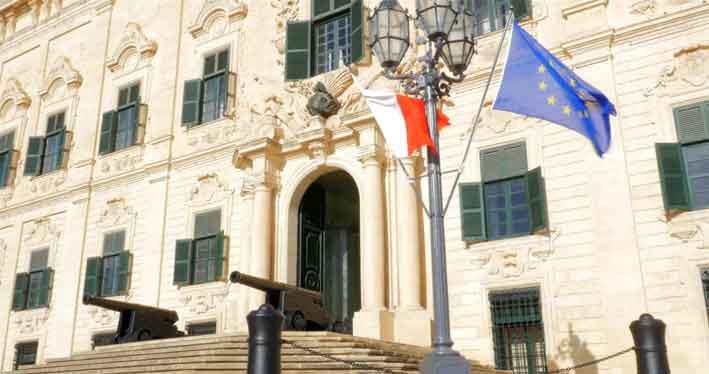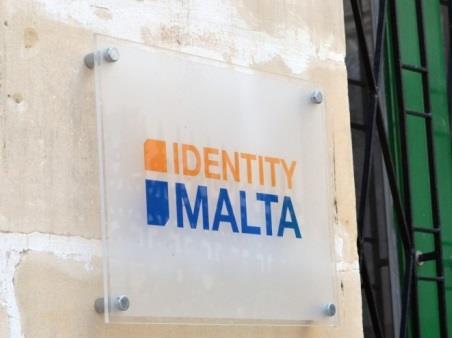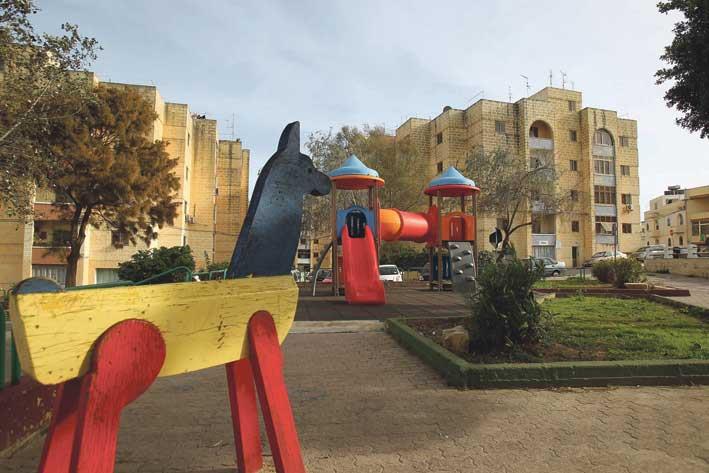The National Budget 2018 comes in the aftermath of a general election campaign, during which political parties showered the electorate with promises to win votes, at times with scant consideration to the economic costs of their implementation.
This budget is also being presented at a time when the main economic indicators are positive: a low record unemployment at 4.7% and at 4.3%, real GDP growth which exceeds the average of the Euro area.
In spite of the characteristics of an economic boom, inflation, at 1.5%, has remained in line with the EU average. These results have been confirmed by the recent Fitch report which has upgraded Malta's credit rating.
Over the past year, social partners have grappled with the problem of uneven growth in different economic sectors and its impact on wages through an agreement about the minimum wage.
This agreement set important principles in wage determination in Malta, amongst which that:
- The labour market mechanism on its own cannot be expected to address poverty matters. At enterprise level, wage levels are determined on the basis of productivity and competitiveness.
- Employers and unions cannot be expected to take the burden of resolving poverty through the industrial relations and collective bargaining structures.
The MEA acknowledges the importance of improving living standards in line with economic growth, which is, after all, the reason which such growth is desirable. Yet it also insists on careful evaluation of any measures to determine their impact on long term sustainability, given that some economic sectors operate within a much narrower competitive margin than others who can easily absorb an increase in operational costs.
This point was emphasised in the memorandum which the Association presented to political parties last April.

Through this memorandum, the Malta Employers' Association is sending a strong message to political parties that pre-electoral promises that affect employers in any way have to be preceded by an impact assessment on costs and competitiveness on Malta's enterprises.
Also, they must be based on quid pro quo considerations - what will employers get in return for such measures to balance the scales? They should first start by declaring whether they are interested in balancing the scales or whether they just want to impose further burdens on industry without a corresponding compensatory benefit. Any absence from work entails not just the cost of labour, but also the value of lost production, and cost of replacement.
Therefore even if the full cost of such measures - paternity leave, public holidays on weekends etc. - is paid by the government, there would still be a cost incurred by employers which will have to be factored in any package that might be agreed upon by the social partners.
For example, it is easy to compare family friendly measures with those of Scandinavian countries, but there also has to be a comparison of the total amount of leave days and public holidays, and the fact that some countries have an unpaid waiting day for sick leave besides systems to curb abusive practices by employees. Simply contemplating a one way discussion - or imposition - is a non-starter. All, political parties should take note of this. The Malta Employers' Association commits itself with its members to only discuss these matters on the basis of a quid pro quo'
The Association is therefore calling for a planned approach whereby government can list the measures that it intends to introduce (e.g. sick leave for parents, public holidays, paternal leave etc.) will have an impact on employers in the coming five years and discuss compensatory measures to neutralise the impact on operational costs to maintain competitiveness. This should lead to an agreement which, as with the case of the minimum wage, will result in better stability for businesses.
Another issue which requires the contribution of the social partners, academics and other stakeholders is the economic and social impact of the changing size and demographical composition of our society.
The fact that about 18% of our labour force is non-Maltese, and that many foreigners are choosing to settle in Malta with their families is changing our social and economic landscape with current and future implications on the labour market, the environment, health, education, culture, language and so many other dimensions.
The upsurge in economic activity has enabled government to achieve a budget surplus during 2017. Government policies and fiscal management should ensure that this trend is sustained even the economy cools down, through curtailing recurrent expenditure which should not be sustained or increased at the cost of suppressing capital expenditure.
1. COLA
In the budget for 2017, government announced an advance increase in COLA which would be deducted in the next year. This should be implemented in the coming budget.
2. Public Holidays falling on Weekends
In line with the principle explained in the introductory section of this document, any decision to add public holidays falling on weekends to optional leave should be balanced out with compensatory measures to be discussed with employer bodies prior to implementation. Between 2018 and 2022, there will be a total of 19 public holidays falling on weekends.

3. Public Sector Employment
During 2017, employers in the private sector have been concerned about the exodus of employees from their companies to work in the public sector, often to be replaced with foreign workers. Gozo has been particularly affected by this phenomenon, but many companies in Malta are facing a similar situation. Government should make every effort to streamline its operations to free human resources to productive jobs in the private sector, possibly through natural wastage. There should be a level playing field in the labour market between the public and the private sector.
Concurrently, government should also address areas where it is facing labour shortages, such as teaching and health to encourage more young people to take up careers in these areas. The public sector wage structure makes it attractive for unskilled and semi-skilled employees, but demotivates higher skilled grades. Widening inequalities are not bad in themselves but could reflect just compensation for qualifications, productivity and level of responsibility.

4. Identity Malta
Given the increased demand for foreign workers and third country nationals, the process of issuing work permits has to be streamlined further and more resources allocated to Identity Malta. MEA had presented a set of proposals in 2016 about such a reform and the Prime Minster recently has announced that changes in the way Identity Malta operates will be implemented shortly.
5. Part-Time Work for TCNs
It is being proposed to allow TCNs to work part time. A number of them work for relatively low wages and may find it hard to make ends meet due to the high cost of rent, leading them to leave the country. Allowing them to work part-time will incentivise them to stay to offer their services in Malta.
6. Positions of Trust
In its memorandum to political parties, the Association made the following recommendations about engaging persons in positions of trust:
- It is understandable that any party in government needs to appoint persons in positions of trust, but the number of such appointments should be subject to a ceiling. These appointments should not be perceived to be the result of political favours.
- Members of parliament should not hold positions of trust. This may be in conflict with their duties in parliament.
- There shall be full public disclosure of contracts, remuneration conditions, including bonuses and perks, of persons occupying positions of trust.
- All persons occupying a position of trust with public entities and who have not been employed through a recruitment process should be subject to a periodic audit by an independent board to justify their position. The board shall include representatives from the opposition. As with any private sector company, they will report on time spent, activities and results achieved.
- Key positions in Authorities should be approved by a two thirds majority in parliament.

7. The Rental Market and Social Housing
Before any actions about social housing are taken, there should be a thorough exercise to determine whether the current stock of social housing is being used for its intended purpose. It is well-known that in the past social housing has been allocated more on the basis of political favours than genuine entitlement.
The MEA also believes that any entitlement to social housing cannot be permanent and should be subject to a periodical review. The rent may be revised according to family income.
An important consideration in the design of social housing schemes is the impact on disposable income relativities. Given the narrow wage differentials in Malta, it would be better for a person to take on an unskilled job and be entitled to social housing than to have a higher paid occupation and be forced to purchase property or rent at market rates. A means testing mechanism can be established as per the social benefits application.
If it is based on family income, it may also disincentivise families to access a second declared income, which in most cases translates in the woman not seeking employment, or encourage undeclared work. An additional factor is that social housing should offer basic accommodation. In the past, social housing units were more luxurious than the average household unit for which the owners would have spent a lifetime's savings.
There should also be a radical change in the range of homes offered, according to today's society trends. Dwellings for different inhabitants should be offered, for example studio flats for single persons, two and three bedrooms for families, low cost community units for Gozitan workers and students, with private suites but sharing kitchens, and other common areas.
The property and rental market is of concern to employers as inflation in this area leads to higher wage demands which are not reflected in productivity.

8. Transport and Traffic Management
Government should intensify incentives for a higher take-up of electric cars through better subsidies and a wider diffusion of charging points. Some countries are setting 2030 as a target to remove all diesel vehicles from the roads, and to have all vehicles electric by 2040. With the high density of vehicles and the resulting air and noise pollution, Malta could be at the forefront of these developments provided that stakeholders are consulted. Gozo could be an ideal test market for conversion to electric vehicle technology.
The introduction of alternative public transport can alleviate traffic problems in the longer term, but better management can lead to immediate benefits. Campaigns for car pooling, incentives for company transport can reduce the problem faced by commuters and businesses. Development permits should also consider the impact on traffic flow and possible bottlenecks that might be created through increased population and car density in some areas. Flexibility in school and work starting times should also be given some attention as this can alleviate traffic rush hours, and pressures for transport hiring companies.
Well over a year ago Government announced the implementation of a traffic management plan. One measure that was mentioned was a control centre with overriding facilities on traffic lights. Government should implement this idea ASAP.

9. Family Friendly Measures
Any new mandatory family friendly measures should be discussed with employers prior to implementation, and subject to an SME test. There are all indications that point towards a much wider diffusion of family friendly measures in the private sector, but employers stress that it benefits both company and employees to apply such measures on a case by case basis. Automatic entitlements can be highly disruptive, especially to small and micro businesses. Reviewing certain employment regulations can further promote the increase of such family friendly measures.
10. SMEs and Micro Businesses
- Government should consider sponsoring non-Executive Directors to the boards of micro-businesses and start-ups to encourage a culture of corporate governance in Maltese businesses. Any organisation adopting such a stance could have an added benefit by gaining points towards any reduced interest on loans schemes, government tenders, export schemes, etc.
- This can be enhanced by setting up a business clinic, to assist businesses in difficulty.
- The entitlement to training grants and assistance should be reviewed to address upskilling, and also to cover the specialised training, which is missing on the island, and presently given by the employers themselves.
- Self- employed persons who reach pensionable age, and still continue working are given the pension, but still have to pay the full national insurance contribution until they are 65 years old. During this time they are not entitled to any sick , injury or any other social benefit, even if they are still paying the full N.I. It is proposed to review this situation.

11. Air Malta
There is a need for a decisive strategy for Air Malta. Fundamentally, it cannot operate on the existing scale with the current size of the labour force. It can only retain its employees if it increases its business, and the best hope of achieving this is through a capital injection by domestic or foreign strategic partner/s. The catch 22 situation is that there is hardly any chance of attracting a strategic partner unless the labour force is scaled down to a more manageable level. Clearly a decision needs to be taken in the coming months.
12. Private public partnerships
There is scope for full or partial privatisation of certain public activities. Air Malta and Wasteserve are two examples which can benefit from better efficiencies through private public partnerships.

13. Think Tank on Brexit
Government should set up a proactive think tank on Brexit to:
- Monitor developments
- establish scenarios of how Malta can be affected
- to identify related opportunities and threats for each scenario
- propose action plans.

14. Education
- Unemployed persons and migrants should be asked to attend mandatory numeracy and literacy courses
- There should be more effort to encourage students to participate in apprenticeship schemes. There is a shortage of skilled persons and technicians at MQG levels 4 and 5 in the labour market.
- The process for the accreditation of non-formal learning recognition to establish pathways for achieve higher MQF Levels should be intensified.
15. A Level Playing Field
Competition is a healthy aspect of business and has always been encouraged by the Association, as long as all participants play by the same rules. This is not the case in the retailing sector. Many supermarket owners report that they are surviving on the merit of an increased population due to the many foreign workers in Malta and Gozo, and that they are losing market share to a retail chain that is gaining a market dominant position due to tax incentives from which they do not benefit. This state of affairs is also affecting manufacturers who produce for the domestic market as, to reach consumers, they face a serious barrier to entry. The constant flow of unchecked imports from Sicily by catamaran also needs to be addressed, as this is being detrimental to local producers and importers who face a serious competitive disadvantage as they pay VAT and other taxes on their output while the products brought over from Sicily pass through unchecked. Products and produce coming from Sicily by catamaran should be subject to customs checks and regulations same as any other imports.

16. Energy
Commercial rates of energy in Malta are higher than domestic rates, and are also higher than the EU average. This effectively means that businesses have, for decades, been subsidising domestic energy rates. With the current international prices of fuel, combined with the benefits of having the interconnector and the gas power station, it is being proposed to streamline these divergent rates over a five year period to have a uniform rate of energy in Malta. In many EU member countries the commercial / industrial rates are in fact the same as domestic rates.
Night tariffs for businesses should be introduced.
17. Set Off
It is common for companies to be owed money from one Government department whilst having outstanding payments themselves with other Government departments. This causes a strain on the cash flow of many companies who are, in some instances, charged interest and penalties on outstanding payments, and at times even face criminal proceedings. It is proposed to establish a system under which set-offs can be arranged. This will be a big relief for many businesses as it improves their liquidity situation.
Attention is also to be brought to the fact that, notwithstanding the 30 day period credit facility, allowed by the latest payment EU law, there are sectors of the local businesses, that are still on 90 - 120 days payment terms. Government is also not in line with the late payment directive in managing tenders.

18. Child care facilities
The measure to introduce free child care has yielded positive results in terms of an increase in female participation. The service can be improved by considering the needs of an increasing number of families who are on shift work. These can be accommodated through an expansion of the hours during which child care is available, and through the setting up of more child care centres around Malta and Gozo.

19. Waiting Day
Many companies are concerned about the increased incidence of sick leave - in particular sporadic sick leave linked to weekends. As happens in other countries, the first day of sick leave should be unpaid and treated as a waiting day.
20. Compliance with CRPD criteria
Government should introduce incentives for businesses to comply with the criteria of the Commission for the Rights of persons with Disability. Structural changes in business premises can entail substantial expense for many companies. There should also be a fast lane for processing applications for such alterations to business premises.

21. Legalising Marijuana
Employers are concerned about the effect of legalising marijuana on the workplace, and should the legalisation come to pass, expect tangible measures to protect the workplace.
- Smoking marijuana on the job is unacceptable behaviour even if the substance were to be legalised. As with other serious offenses, it should be a cause for instant dismissal.
- Employers should have the right to conduct random drug tests to establish whether they have smoked at the workplace and also to determine whether they are under the influence. This will avoid potential risks to themselves and other employees, bearing in mind that the effects of the substance may last anything between two and six hours.
- Even if there are no immediate OHS risks, companies should be free to implement policies that do not allow employees on their premises under the influence and to take any disciplinary action against employees found to be in breach of such regulations. It is known that smoking marijuana is conducive to lower productivity. It also impedes memory, problem solving, balance and coordination, concentration and reaction time.
- The side effects of smoking marijuana may also lead to an increase in sick leave - both directly because of the properties of the substance and also indirectly due to increased absence because employees may opt to report sick to avoid reporting for work if they are still under the influence. This could be costly to employers.
- Employees should be obliged to notify employers that they are consuming marijuana even if it is for medicinal purposes.
Employers insist on full consultation with employer bodies about the matter in any upcoming debates on the subject. This is hardly a budget measure but it is being brought up as it is habitual to announce social measures during the budget speeches.
22. N.I. Contributions
In cases where employees working part-time or reduced hours pay less than the minimum flat rate of National Insurance, the employer should not be obliged to pay the minimum rate. The employer should pay the equivalent of that paid by the employee